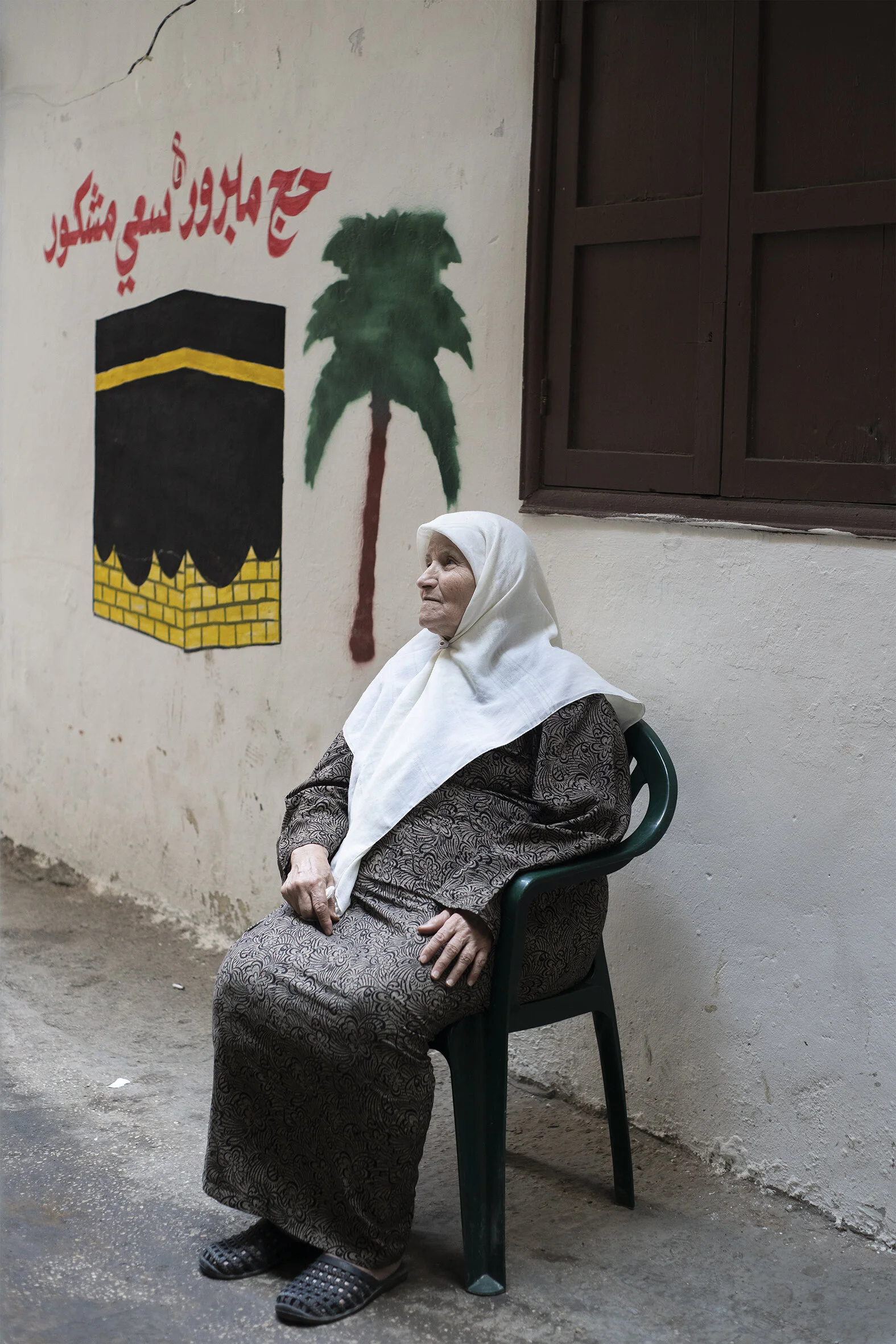Victoria Mørck Madsen
Photojournalist
Lebanon’s forgotten Palestinians
Twelve year old Fayza Abed and her family did not have time to pack when they left their home in Akko, Palestine for what would be the last time. They could hear Israeli bombs falling nearby and so they ran over their fields towards safety in Lebanon. The family thought they would be able to return in a matter of weeks when the Arab-Israeli War died down.
Today Fayza is 84 years old. Her body is withered and tired after a whole life in the Palestinian refugee camp Burj al-Barajneh in Beirut. Like the rest of the estimated 100.000 Palestinians who fled to Lebanon after the Israeli invasion in 1948, Fayza never returned home.
Her tent on a sand dune outside of Beirut was eventually replaced with a concrete house. Stories were added to house children and grandchildren, all born in the camp, listening to stories of their homeland, watching grainy videos from Palestine on cell phones, dreaming of a land lost in one of the most bitter conflicts of our time.
This is the story of Fayza and her family.
Fayza
“I feel like Lebanon is a shirt I’m borrowing, while mine is being washed”, says Fayza. “I am still waiting to return to my country”.
Fayza met her husband in Burj al-Barajneh, gave birth to seven children, cradled numerous grandchildren and eventually buried her husband. But in spite of her 72 years in Lebanon, she still does not feel at home.
“The Lebanese discriminate against us. We are not welcome here. My husband was a teacher and had a good relationship with his colleagues, but personally I don’t have fond memories of the Lebanese. The government certainly doesn’t want us here”.
In July 2019 a new law was passed in Lebanon that requires foreign workers to obtain a work permit to gain employment. Under this law, Palestinians who have lived in Lebanon for generations and make up 10 per cent of the country’s population, are considered foreigners. This sparked anger and protests in all of Lebanon’s twelve Palestinian refugee camps, as many have been feeling discriminated against for long. Laws are already in place to keep Palestinians from working in 39 professions (law, medicine and engineering to name a few) and owning land. Also their access to the public school and health systems is limited.
“I have lost hope,” says Fayza. “My children and grandchildren are educated, but cannot work. The family is scattered, many are in Abu-Dhabi and Saudi Arabia, working to send money home. We all lost our future when we left Palestine”.
Wael
Fayza’s son Wael is 58 years. He was born in Burj al-Barajneh and has lived here most of his life. When he was younger he spent four years in the United Arab Emirates, working in a shop, sending money to his family. However, as Wael is the oldest of Fayza’s sons, he was forced to return to Lebanon following his father’s untimely death. Twice he suggested that the entire family try moving to Europe, twice Fayza refused. Wael never asked again.
“Perhaps it would have been easier to forget about Palestine if we had gone to live somewhere else. But I’m still grateful for the stories my parents told me about our homeland. Even if I’ve never been, I carry it in my heart,” says Wael.
Wael owns a small kiosk close to the family’s house. Business is slow and Wael is worried about his family and frustrated with how his life has turned out so far. In his youth, he dreamt of becoming a civil engineer, but his family could not afford his studies past high school.
“Perhaps I could have had a better life if I had studied. Perhaps it would have been useless, given the political situation for Palestinians in Lebanon today,” says Wael.
Khaled
Wael’s son Khaled is just as frustrated as his father, but he has a plan. Europe. Preferably Sweden, where he has the impression that people are treated “with respect and dignity”, but anywhere that is not Lebanon will do. He has the contacts, but he needs 10.000 dollars to pay for the journey.
Like many people from his generation, 22 year old Khaled has had enough. He feels discriminated against by the Lebanese government and the people alike. People hear his Palestinian accent and look at him funny. Finding a job has proven impossible in spite of his education in marketing.
“For five months I applied for any job in any shops in Lebanon. Inside and outside Beirut. I was turned down by every single one and to be honest, I just can’t do it anymore. They’re purposely trying to keep Palestinians unemployed,” says Khaled.
At night, Khaled spends time with his friends from the camp, smoking shisha, playing PlayStation and watching videos on their cell phones until sunrise. Then he goes home to sleep. They’re all in the same situation. Wanting to leave without being able to, feeling like outcasts in a society that does not care about them.
“We were raised to be strong and to love Palestine. The Lebanese were raised with silver spoons in their mouths. We learned about discipline, they got cars for birthday presents. I will never feel Lebanese and I’m quite fine with that,” says Khaled.
According to Khaled, the Lebanese don’t understand the kind of hardships Palestinians experience in the camps and in the Lebanese society as a whole. Just the other day, Khaled’s friend was shot and killed inside the camp. No one knows why. This only added to Khaled’s eagerness to change his situation, to leave Burj al-Barajneh for good.
“I don’t know if I will be alive tomorrow. Or in ten years. But if I can get myself a European passport I can at least live in safety. And if I have a European passport I can visit Palestine”.







